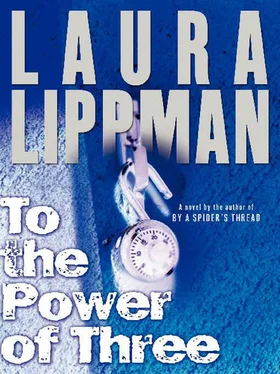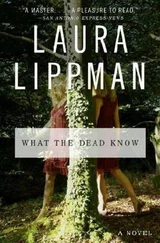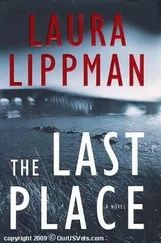“In your history class,” she had told her girls, “you are taught the difference between primary and secondary sources. In the media there are distinctions among knowing something first-, second-, and thirdhand. Primary, or firsthand, refers to things you have observed. The moment you rely on someone else’s account of an event, no matter how authoritative, you open yourself up to errors. Even in retelling the details of an event that you have seen, you may make mistakes, large or small. Memory is imperfect.”
She told them about the fallibility of eyewitnesses in criminal cases, reading from a piece in the New Yorker . She put them through an exercise, asking half of the students to leave the room while the others watched Ms. Cunningham and the history teacher, Mr. Nathanson, act out a skit. The other students were then summoned back to the room and paired with those who had seen the skit. Based on the retelling, they had to write short reports about what happened.
“It’s like Telephone,” Ms. Cunningham had concluded after sharing some of the funnier errors with the students. “Only it’s not a harmless game. Misinformation can ruin a person’s life.”
A girl’s voice called from the back of the room, “But what if a story is true? Can someone sue you for telling the truth?”
A few girls gasped, but it was a fake shock, a form of mockery. The girl who had asked the question was Eve Muhly, and everyone knew that the stories about her were true. Who was she going to sue, when sixty other sophomores had seen exactly what she did?
“The point of this exercise is just how hard it is to know the truth of anything. If you don’t have firsthand information from primary sources, you shouldn’t gossip about it.”
“What if you talked to the victim?” Eve persisted. “Because I did.”
“I didn’t know,” Ms. Cunningham said, “that you were a pig whisperer, Eve.”
Everyone laughed, and Ms. Cunningham looked uncomfortable at the success of her joke, clearly aware that she had been less than teacherlike in her demeanor. But Eve didn’t seem to be the least bit perturbed.
“I mean the Snyder family. We live next to them. My dad went over there after he heard what happened. Would my dad count as a firsthand source?”
“No, he would be secondhand, unless he told you about something he observed directly, not what Mr. Snyder told him. But really, Eve, the point is not to talk anymore about this horrible incident, the point is-”
“My dad saw it. So it’s firsthand. He saw the letter with his own eyes.”
“Eve-”
“They used blood to write a note. It said, ‘We’re coming for your pig daughter this summer.’”
This gasp was real. This information was new, and quite provocative. Binnie Snyder was not as pink and red-eyed as she had been in grade school, but she was still an odd girl with carroty hair, a girl so advanced in mathematics that she took extra classes at Johns Hopkins. When she spoke in class-and she spoke often-her voice was too loud and strangely inflected. And she still had a way of squinching up her face when thinking hard. “Pig” would have been unkind, but not altogether untrue.
“I think,” Ms. Cunningham said, “that we’re getting off topic.”
Josie, who was there for the session, could not wait to tell Kat and Perri about this development. She raced to find them as soon as class was over, risking a tardy slip for English. She reasoned that it was okay to tell Kat about Eve’s information because she wasn’t saying it was Seth, Chip, and Kenny, whose guilt could not be established. The point was that the perpetrators, whoever they were, were so much more evil than anyone had realized.
But Kat had shook her head, refusing to believe the story even in its generalities.
“Eve Muhly is a slut,” she said, shocking Josie, who had never heard Kat speak so cruelly of anyone. “And a liar. Everyone knows that. She’s just making stuff up to get back at the people who talked about her .”
“Don’t use ‘slut’ just to criticize some girl you don’t like,” Perri said, her voice a dead-on imitation of Ms. Cunningham’s. She switched to her real voice. “Seriously, if anyone is a slut in this scenario, it’s Chip. He went after girls the same way he scored goals in soccer. But everyone thought he was cool, whereas Eve gets in trouble for giving one blow job.”
“He’s dead, ” Kat protested.
“And when he was alive, he wasn’t very nice. People don’t become something other than what they were just because they had the misfortune to die.”
“Okay, Chip wasn’t the greatest guy. But Seth was our friend, ” Kat said. “And everyone loved Kenny. We’ve known them both since we were five years old, Perri.”
That gap, seldom alluded to, always made Josie feel a twinge of jealousy and insignificance. She hated being reminded of Kat and Perri’s longer history, the three-year difference she could never make up. The three could be friends for eighty years, and yet Kat and Perri would then be friends for eighty-three.
“But what if they really did it?” Perri persisted. “How would you feel about them then?”
“I’m not going to speculate about someone who’s dead.”
“Why not?”
“It’s mean, it’s harmful.”
“To whom? They’re dead and it’s not like their parents are standing here.”
Josie had watched them, anxious, filled with regret that she had brought them what she considered nothing more than a juicy story, only to start this near fight. Ms. Cunningham was right about the destructive power of gossip.
Kat and Perri glared at each other. It all seemed so much angrier, so much more personal, than it had any right to be. But Kat had no talent for anger, and she broke first.
“I can’t be sure of anything. I don’t know, and you don’t know, and Eve Muhly definitely doesn’t know. She was, like, borderline retarded when we were kids, remember? I can’t believe you’re taking her side.”
“I’m not. I’m just being open-minded. There are infinite possibilities here.”
“If someone said anything horrible about you or Josie, accused you of doing something disgusting, wouldn’t you want me to defend you?”
Josie waited, as curious about this answer as Kat.
“It depends,” Perri said. “What if I really did it?”
PART FIVE. There Won’t Be Trumpets
Wednesday
26
Infante liked to sayhe could smell crazy on a woman-the better to run right toward it. But even Infante seemed skittish around the gorgeous redhead who had shown up at headquarters this morning offering her full cooperation in the Hartigan case. Yet thirty minutes into the conversation, she had managed not to answer a single direct question. This horse has led herself to water, Lenhardt thought in exasperation, but she still doesn’t want to drink.
The woman was Michael Delacorte-estranged wife, registered owner of a murder weapon, Perri Kahn’s former employer. So far she had explained how she came to marry Stewart Delacorte (much too quickly), and the travails of their two-year-old son (rare genetic disorder), which had helped her focus, after much searching (yoga, Buddhism, ceramics) for meaning in her life. The epiphany that she needed to leave her husband arrived, coincidentally, the same week as the news of the SEC investigation into his business affairs.
“I realize now that I was put here to care for my son, that my purpose in life was right there in front of me,” she said, smacking the table so forcefully that her tennis bracelet slid up and down her skinny forearm each time her palm landed. Lenhardt had never understood the origin of that name, tennis bracelet, but he knew that his wife would like one. “Oh, you have no idea how wonderful it is to realize that one’s life has true meaning .”
Читать дальше












